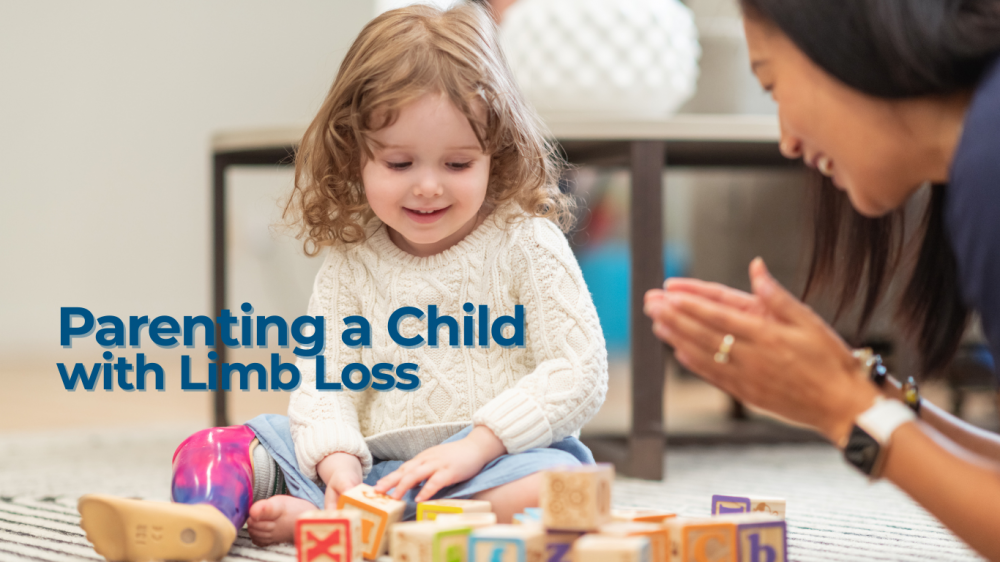Becoming the parent of a child amputee can feel overwhelming, especially at the beginning. Whether your child was born with a congenital limb deficiency or experienced an acquired amputation, it’s natural to feel uncertain and afraid. But you are not alone. In Winnipeg and across Manitoba, many families have faced this journey—and with the right support and resources, your child can thrive.

Understanding Limb Loss in Children
A congenital limb deficiency refers to a limb that is missing or underdeveloped at birth, while an acquired amputation involves the surgical removal of a previously formed limb due to injury, infection, or illness. No matter the cause, there are many families like yours in Winnipeg navigating these experiences that share many common emotions: grief, guilt, anger, fear, and doubt.
Acknowledging your feelings early on is essential. Processing your emotions in a healthy way allows you to stay focused on your child’s well-being and rehabilitation. While it’s okay to feel overwhelmed, children are highly perceptive—so working through these feelings privately, with the support of a professional or peer, can help you maintain a positive atmosphere at home.
Local Medical and Rehabilitation Support in Manitoba
In the early weeks following your child’s amputation or diagnosis, you will work with a multidisciplinary team of specialists to create a care plan. Winnipeg offers access to a range of pediatric medical professionals, including:
-
Pediatric orthopedic surgeons
-
Prosthetists and orthotists
-
Physiotherapists and occupational therapists
-
Psychologists and social workers
-
Oncologists and rehabilitation specialists
These experts will help guide your child’s treatment and development, answering questions and offering guidance every step of the way. Remember—there is no such thing as a silly question. Asking for information and advocating for your child is part of your role, and professionals across Manitoba are here to support you.
Handling Public Reactions with Confidence
In addition to medical care, you’ll face social and emotional challenges—especially when it comes to public reactions. People may stare or ask questions about your child’s limb difference. While some parents in Winnipeg feel comfortable addressing these interactions head-on, others benefit from practicing responses with a friend or therapist first.
There is no "right" way to respond, but a calm and confident attitude helps others take cues on how to treat your child with respect and kindness. Every day won’t be easy, but your strength will help shape how others view your child—and how your child sees themselves.
Winnipeg Resources for Families of Child Amputees
Support networks are vital. In Manitoba, organizations like The War Amps offer exceptional services through their Child Amputee (CHAMP) Program, including:
-
Financial assistance for artificial limbs
-
Peer support and regional seminars
-
Guidance for navigating school, sports, and social situations
Useful Links:
You're Not Alone – Local Help for Manitoba Families
For over 40 years, The War Amps has empowered children and families across Canada, including right here in Winnipeg. Their resources can help your child build confidence, pursue physical achievements, and overcome barriers with courage.
With the right support system, your child can live a full, active life. As a parent of a child amputee in Winnipeg, you are not alone—and with every step forward, your family grows stronger together.
Sources:
